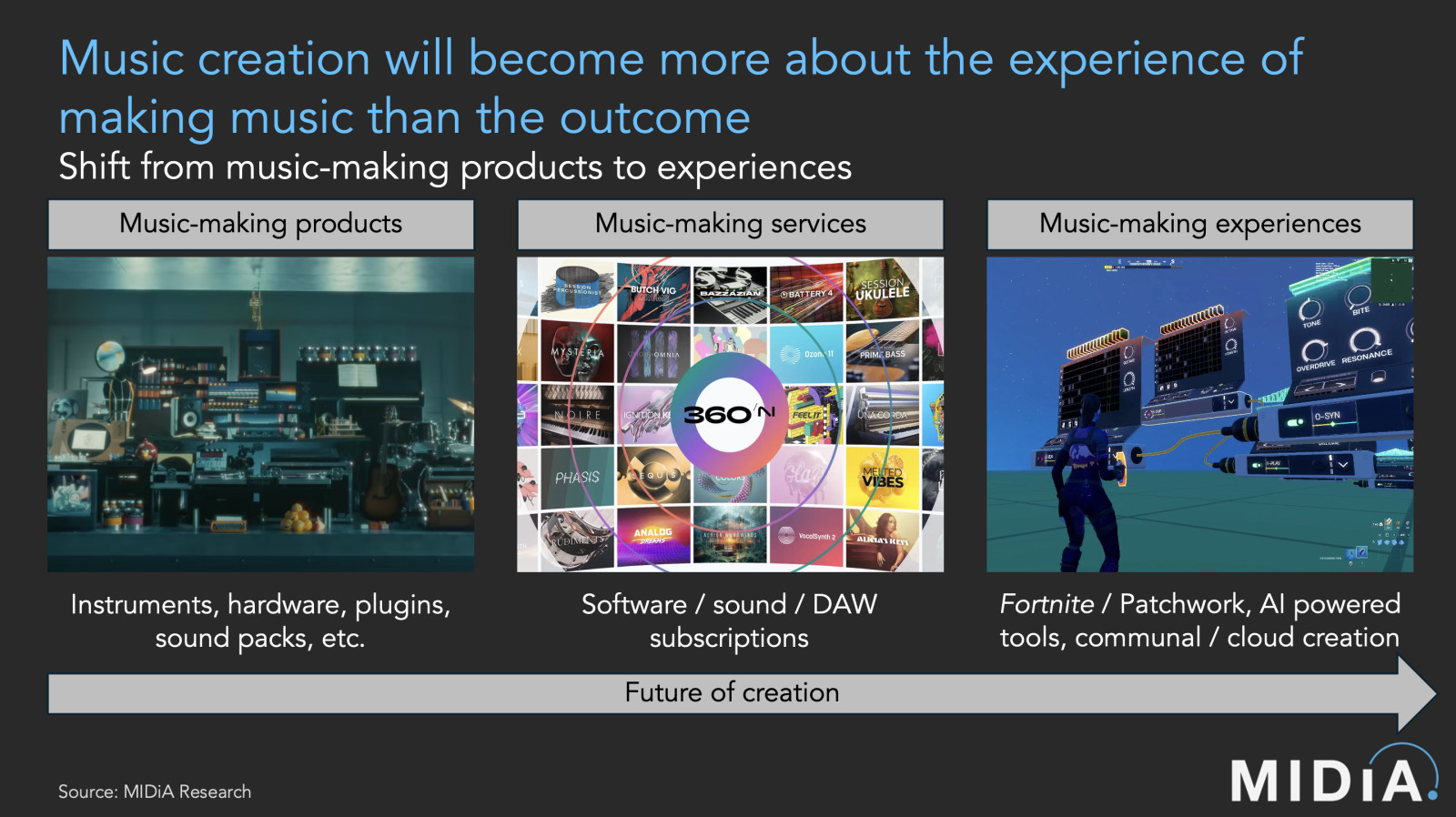Apple is not the only one crushing the old music-making paradigm


Apple is crushing it – literally. The new iPad Pro ad received widespread backlash for its controversial crushing of musical instruments to demonstrate what is ‘packed into’ Logic Pro on the iPad. Despite the criticism, the latest update is a reminder of how the world of music creation has changed.
It is exactly a year since Logic Pro was made available as a subscription on iPad and the press release from last year shows a stark contrast in the role music-making plays. In 2023, Logic Pro was all about the sound browser, production tools, the mixer and the exporting capabilities. Essentially everything you need to make a track from start to finish.
In this year’s Logic Pro update, we have an AI-powered backing band, an AI stem splitter and another AI tool that, put simply, makes whatever you are making sound better. The focus is less on making music to completion and more on creating a better music-making experience.
This is reflective of today’s creator experience. The reality is that many producers and artists face a brutal uphill battle for success no matter how much they spend on tools or how much effort they put into their music. Music is more competitive than ever and most creators are not seeing a return on their investment.
This is why there is less focus on finishing music for release and more on enjoying the experience. At MIDiA, we have consistently seen creators sharing music online as the fastest-growing creator behaviour. Sharing on social media isn’t about making and finishing a polished product, it is about creating music as a vehicle for connection and engagement with others.
The subscription backlash
The past decade has seen music-making shift from a product-based industry towards music-making as a service. However, whilst the subscription models for beats and sounds have taken off, subscriptions for plugins and virtual studio instruments have seen significant backlash. There are a couple of reasons for this.
Featured Report
Music streaming consumer profile Q4 2024 Stabilisation and fandom slowdown
Consumer music behaviours are both stabilising and showing signs of coming change. Change that could be challenging for all music business stakeholders, especially with regards to fandom monetisation....
Find out more…The first is that sounds and tools are different. Whilst many people pay subscriptions for ingredient boxes like HelloFresh and Gousto, they do not want to pay subscriptions for their pots and pans. Most creators want to own their tools, not rent them. This is because there is a long-standing personal attachment to the tools we use to express ourselves, whereas the ingredients we use can change with the season.
The second reason is that the companies attempting to operate subscription models are up against superior propositions. If subscribing to plugins and VSTs is like renting pots and pans, then a DAW subscription is like renting a kitchen. Whilst this can make sense if you are looking for more ‘industrial’ capabilities that you cannot get at home, most of us are happy to get the job done with the kitchen we have. And that is exactly what BandLab provides.
The shift to experiences
Who wants a subscription for pots and pans when someone is providing the whole kitchen for free? Furthermore, if the goals are changing from making a quality finished product to enjoying the experience and sharing it with others then not only is free going to win, but so will communal music-making experiences. And here lies the latest disruption for the music-making world.
BandLab’s cloud-based DAW is a best-in-class example of collaborative music-making within a DAW. However, the past year saw Epic Games move into this space in an entirely different way. Patchwork may not be the buzziest word on everyone’s lips, but the music rendering tool that Epic Games provides in Unreal Engine is the foundation of the next generation of music-making experiences.
MIDiA previously wrote about Patchwork and the MetaSounds tools when they were unveiled last year. It is the product of a simple singular vision: build a DAW in Unreal Engine and Fortnite. Epic Games have developed a DAW in a gaming environment that functions unlike any other: The music sends messages to the gaming environment, which means that the game reacts to the music and can be shared in real-time with anyone else in your immediate gaming environment. This is not about making music for consumption - this is about making music to enhance your entertainment experience.
Music tech’s race to the bottom
What BandLab and Epic Games have in common, along with ByteDance and its music-making tools, is that music-making is not the product being sold. Creating music commands your full attention, which is a scarce resource in today’s saturated attention economy. Music-making is a driving force to capture attention and monetise it in other ways, whether that is services, in-game spending or advertising. Apple has been doing this for years to drive sales of Macs and is now pushing to do the same for iPads. Music-making as an experience to drive revenue elsewhere is the dynamic that will shape the creator tools business over the next decade.
This is music tech’s race to the bottom and the incumbents of the music-making world need to take note. Music-making as an entertainment experience is here, and so are the radical new business models to capitalise on it. By providing free, communal creation experiences that are designed for fun rather than creating a finished product, music-making is entering a new paradigm. And when the way music is made changes, so does the whole business of music.

There is a comment on this post, add your opinion.